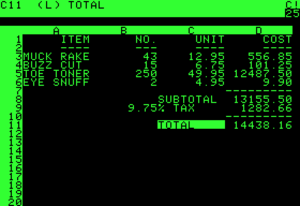Wednesday, March 30, 2016
Debunking the biggest myths about artificial intelligence
It seems that A.I. is always in the news these days and as somebody who has been working in the field since the 1980s it's heart-warming. Unfortunately, it's also depressing that so much of the coverage is just plain wrong. Ars Technica recently published a thoughtful article titled: "Debunking the biggest myths about artificial intelligence", which I would recommend you read. The BBC also recently aired a documentary, in its excellent science series Horizon, titled: "The Immortalist", which covers some of the same ground. Basically, we know so little about how the human brain works that the idea of uploading our minds into a computer is pure science-fiction.
Wednesday, March 23, 2016
Google's AlphaGo wins challenge series 4:1
After IBM's Deep Blue beat Grand Master Gary Kasparov in a chess challenge series game AI moved onto the much harder ancient Chinese game Go (chess was considered "solved"). Recently Google purchased the company DeepMind and proceeded to lay down a 5-game challenge match in Seoul against Lee Sedol, the top Go player in the world, for a $1M prize. The AlphaGo team were not confident they would win, despite having beaten the European Go champion 5:0. In the event AlphaGo won 4:1 and Google got to donate a million to charity. Watch the video below to find out more about the game of Go and the program AlphaGo and read the paper the team recently published in Nature.
Thursday, March 17, 2016
Why a simple spreadsheet spread like wildfire
Why a simple spreadsheet spread like wildfire is a charming article by John Naughton in The Guardian describing how he first came across the spreadsheet VisiCalc in 1979. It describes the brief, but transcendent, history of VisiCalc, arguably one of the most influential pieces of software ever. If you use a spreadsheet daily you must read this.
Monday, March 14, 2016
Pioneering theoretical computer scientist dies
David Johnson, an algorithms researcher, and promoter of all of theoretical computer science, has passed away aged 70. His 1979 book, co-authored with Michael Garey, Computers and Intractability: A Guide to the Theory of NP-Completeness, is still the standard text on this important subject. He lead the Algorithms and Optimization Department of AT&T Labs Research from 1988 to 2013, was a visiting professor at Columbia University from 2014 to 2016. He was awarded the prestigious Knuth Prize in 2010.
Thanks to my colleague, Mark Wilson, for noticing this.
Thanks to my colleague, Mark Wilson, for noticing this.
Thursday, March 10, 2016
Thinking robots become experts in 8 hours
My local newspaper, The New Zealand Herald, has been on a bit of a role producing articles on A.I. recently. The latest piece Thinking robots become experts in 8 hours by Pavel Alpeyev. "A yellow robotic arm pauses over a pile of metal cylinders, snaps a photo, then confidently picks pieces out of the jumble. What's impressive is that just eight hours ago, its bin-picking skills were about zero" This is another article about so-called deep learning, which has been in the news frequently recently.
Wednesday, March 9, 2016
The inventor of email dies
Ray Tomlinson the inventor of email (and yes he decided to use the @ symbol in the address) has died, aged 74. Love or hate email, you'll probably agree that you can't live without it. The amusing thing is that Ray could never remember what the text of the first email, sent in 1967, was. He said "test messages were entirely forgettable and I have, therefore, forgotten them" but it's rumoured it may just have been qwertyuiop.
Monday, March 7, 2016
Moore’s law really is dead this time
I've blogged about Moore's Law before, but it seems that Moore's Law really is dead this time according to ars technica: "Moore's law has died at the age of 51 after an extended illness." In 1965, Intel co-founder Gordon Moore made an observation that the number of components in integrated circuits was doubling every 12 months or so. The article, by Peter Bright, titled Moore's Law really is dead this time explains why - recommended.
Thursday, March 3, 2016
Run Windows 3.1 in your browser
If you're of a certain age you will probably have used Windows 3.1 on a PC. Windows 3 and its descendants was the first mass market GUI operating system for the PC. For those who couldn't afford a Macintosh this was regular folks' release from the tyranny of the command prompt. Many of its features and some of its look and feel are still visible in modern incarnations of Windows. Some clever people at the Internet Archive have created a version of the Windows 3.1 OS that will run in your web browser along with 1,500 Windows 3.1 shareware apps, including classic games like WinRisk.
Subscribe to:
Comments (Atom)





